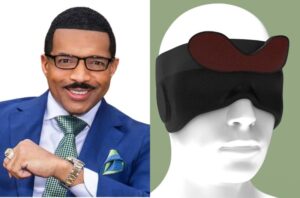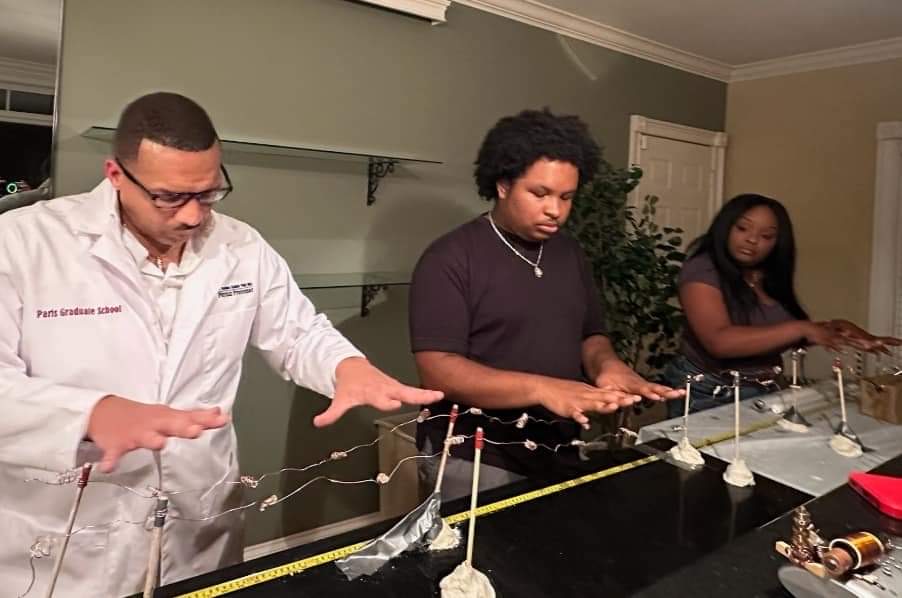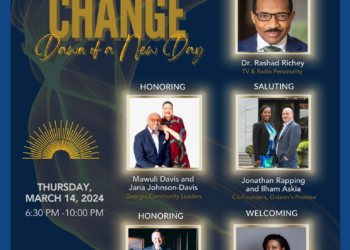Source: LinkedIn
Johnathan Horner, an award-winning composer, producer, and audio engineer, recently posted a blog post article titled, “Dr. Rashad Richey: The Mad Genius Who Just Might Outsmart Dementia”.
He wrote, “Okay, folks, gather ’round and buckle those seatbelts. It’s time to talk about Dr. Rashad Richey, the man on a mission to kick Alzheimer’s right in its forgetful little backside! Now, you might have caught a glimpse of Dr. Richey on Meditech’s website. They mentioned something crazy about “Neurological Brain Entrainment Devices,” quantum theories, and a whole lotta fancy science that might cure dementia. Well, I’m here to confirm it: this guy’s the real deal, and that device of his is pure, unadulterated, mind-boggling genius. Maybe with a sprinkle of madness, but the good kind, trust me.
After obtaining more insight into the device’s operations and effectiveness, Horner utilized his vast knowledge of sound engineering and compositional art to explain the process. “Think of it this way: our brains are like orchestras, right? Each little neuron is a musician, and they all gotta play in sync. Alzheimer’s is like some drunk conductor stumbling in, waving the baton all wrong, and turning the whole symphony into screeching chaos. Dr. Richey’s invention, the NBED, is basically like a cosmic music teacher sent by the heavens. It uses some sort of futuristic brainwave-tuning technology to get those neurons back into harmony, Horner said.
Dr. Richey, who holds multiple advanced degrees and currently enrolled in graduate studies at Dartmouth College, one of America’s 8 Ivy League institutions, is a physics professor at Paris Graduate School and inventor of the Neurological Brain Entrainment Device (NBED), scheduled for medical clinical trials this year. His peer-reviewed published research can be found in the International Journal of Science and Research. He has lectured at universities in various disciplines across America, including the University of Michigan, Morehouse School of Medicine, Clark Atlanta University, Morris Brown College, and Albany State University to name a few. Recently, Dr. Richey was invited to lecture in Egypt by renowned scholar, Dr. Chike Akua, on ancient civilizations and their mastery of quantum physics.

Horner continued, “Here’s the craziest part: they say this thing actually worked on a real-life patient with Alzheimer’s! We’re talking about a peer-reviewed case study and everything – that’s like the Holy Grail of science. I swear, you can practically see the headlines: “Local Physicist Outsmarts Brain Disease – Nobel Prize in the Mail!”
Now, let’s not get ahead of ourselves just yet. This whole thing is still in the research phase, which means Dr. Richey’s probably got his lab looking like something Doc Brown cooked up in Back to the Future. There are wires, mysterious blinking lights, and maybe even a DeLorean parked out back (who knows with this guy, right?).
But you know what’s even cooler than his crazy inventions? Dr. Richey himself! From what his colleague Dr. Carhee said, the guy never stops. He’s probably got ten different scientific theories buzzing around in his head right now, and he’s gotta test ’em all, sleep be damned! This is a mad scientist with a heart of gold, people!
Horner ended his review by saying, “So, let’s raise a metaphorical beaker (preferably full of something caffeinated, ’cause that’s what science runs on) to Dr. Rashad Richey! Sure, his method might be unconventional, his hair might be a touch Einstein-esque, and let’s be real, he probably forgets his own name half the time. But this is the kind of brilliant, slightly-unhinged mind who just might crack the code to defeating Alzheimer’s once and for all.”
Many have taken notice to Professor Richey’s unorthodox yet effective remedies in science and society. In a recent article by Tech Times, they wrote “Dr. Richey’s role as an innovator in neuroscience and his invention’s potential to revolutionize Alzheimer’s disease treatment cannot be overstated. His work reinforces the notion that with the right combination of expertise and determination, the boundaries of medical science can be expanded in ways previously unimaginable.” Adding, “The implications of Dr. Richey’s invention may even extend far beyond Alzheimer’s disease. The principles underlying the Neurological Brain Entrainment Device could potentially be adapted to treat various neurological conditions, from Parkinson’s disease to traumatic brain injury.”
The popular tech publication also said, “As research progresses and the device’s applications broaden, Dr. Richey’s contribution to the field could redefine our approach to neurological care, making treatments more effective, less invasive, affordable, and more accessible to those in need. The Neurological Brain Entrainment Device could prove the power of human ingenuity to confront and overcome the challenges posed by some of the most complex diseases known to man.”
Written By: A.J. Simmons, Journalist





